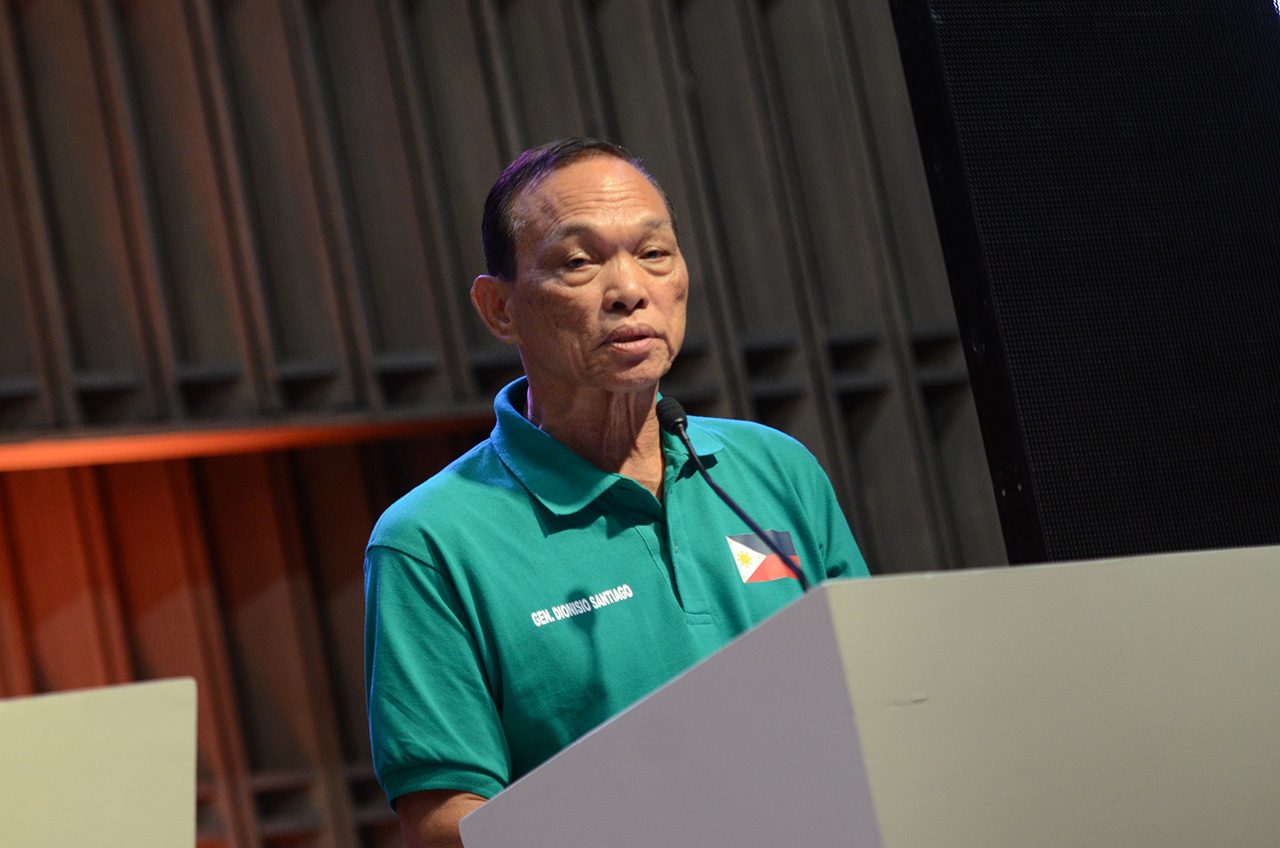SUMMARY
This is AI generated summarization, which may have errors. For context, always refer to the full article.

MANILA, Philippines – The country’s drug problem is largely rooted in the country’s poverty problem.
This was repeated by Dangerous Drugs Board (DDB) chairman Dionisio Santiago on Monday, October 30, when he presented their plan for a new and bloodless anti-illegal drugs campaign. (READ: Why poverty is not a choice)
“Ito ang problema natin sa droga, kasama na ang poverty issue dito eh…What choice do people have between dying and dying? They have no options. Mamamatay ka kapag natokhang ka. At minalas ka, patay ka,” Santiago said.
(This is our problem with drugs, poverty comes with it…What choice do people have between dying and dying? They have no options. You will die from Tokhang, and if you are unlucky, you will die.)
“‘Pag ‘di ka na-Tokhang naman, dahil sa gutom o nagkasakit ka mamatay ka dahil wala kang panggamot dahil hindi ka na aahon,” he added.
(If you do not get shot, you will die out of hunger or disease because you do not have money for medicine, because you cannot rise up [from poverty].)
Their new drug campaign, dubbed “Love Life. Fight drugs.” adopts a holistic approach in winning the drug war: through education, health, and community projects.
A former chief of the Philippine Drug Enforcement Agency, Santiago added that the only reason why people perceive the Philippine National Police (PNP)-led drug war as targeting the poor is that the poor are the most affected by the menace.
According to pollster group Social Weather Stations (SWS), 6 in 10 Filipinos believe that the drug war targets the poor.
“It just so happened na prevalent ang problema doon sa mga marginalized communities understandable nga kasi you have no options…Dahil titikim nang titikim ang nagpupush dahil kailangan nila ng income eh. Kailangan pambuhay ng pamilya eh. Kung wala kang source ng income ano gagawin mo, nakatunganga ka, mamamatay ang pamilya mo sa gutom,” Santiago said.
He then took the opportunity to take a jab at the Department of Health (DOH)’s mega drug rehabilitation project, calling it “ineffective” for crowding together suspects while severing their ties from their support systems: their families.
Those who usually get sent off to the centers, Santiago pointed out, are the poor who cannot afford private drug rehabilitation. (READ: No more ‘mega’ drug rehab centers after Nueva Ecija facility?)
“Marami dito papasok diyan ay mahihirap na pamilya, dahil kung mayaman na pamilya, pupunta sa private rehab,” Santiago added. (Many who will enter those are from poor families because if they are from rich families they will opt to get private rehabilitation.)
He said that through their new drug campaign, which also proposes technical skills training for drug dependents, poverty will be addressed, if not solved. (READ: Drug addiction is a health problem. Somebody please tell the President.)
“Mas mahirap umahon ngayon because of limited opportunities. Kaya ang binabakbakan natin ngayon kung pupuwede, nasa rehab pa lang, bigyan na natin ng paraan para makapag-hanapbuhay,” he added.
(It is more difficult now [to rise above poverty] because of limited opportunities. This is why what we are focusing on, if we are allowed, is for them to be given ways to earn a living while they are in rehabilitation.)
The DDB’s proposed drug campaign was sent in early October to President Rodrigo Duterte for approval. – Rappler.com
Add a comment
How does this make you feel?
There are no comments yet. Add your comment to start the conversation.